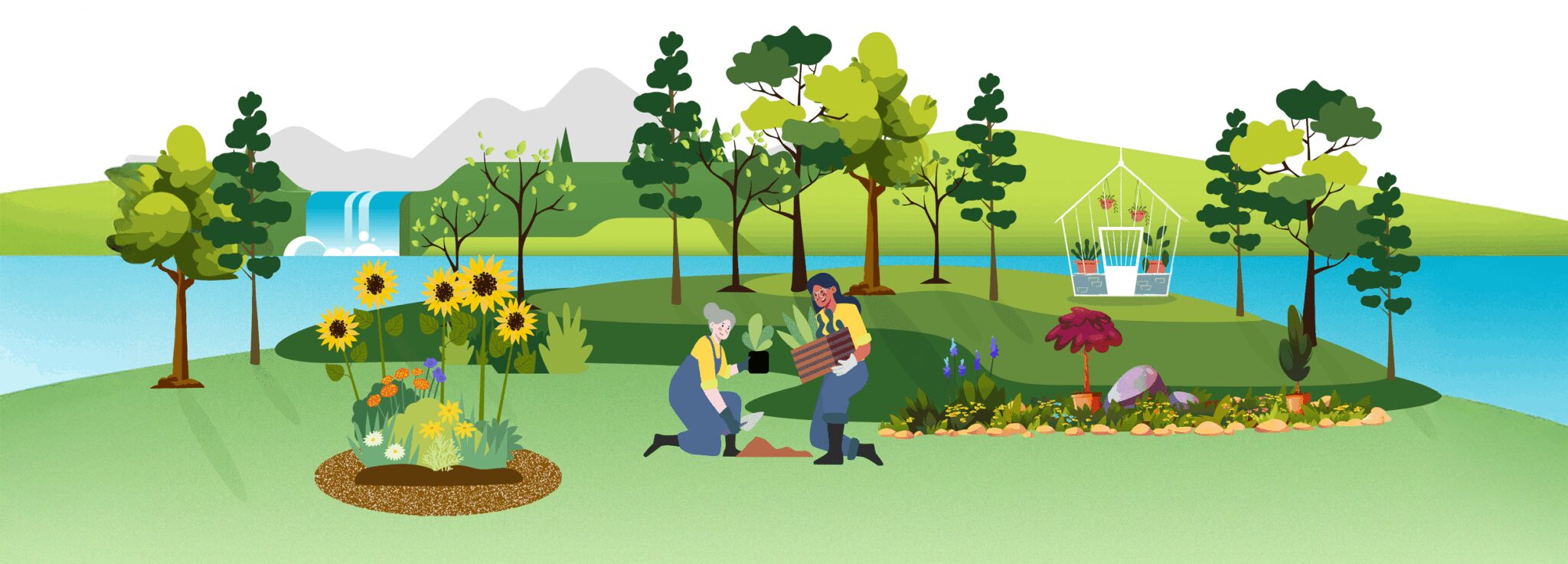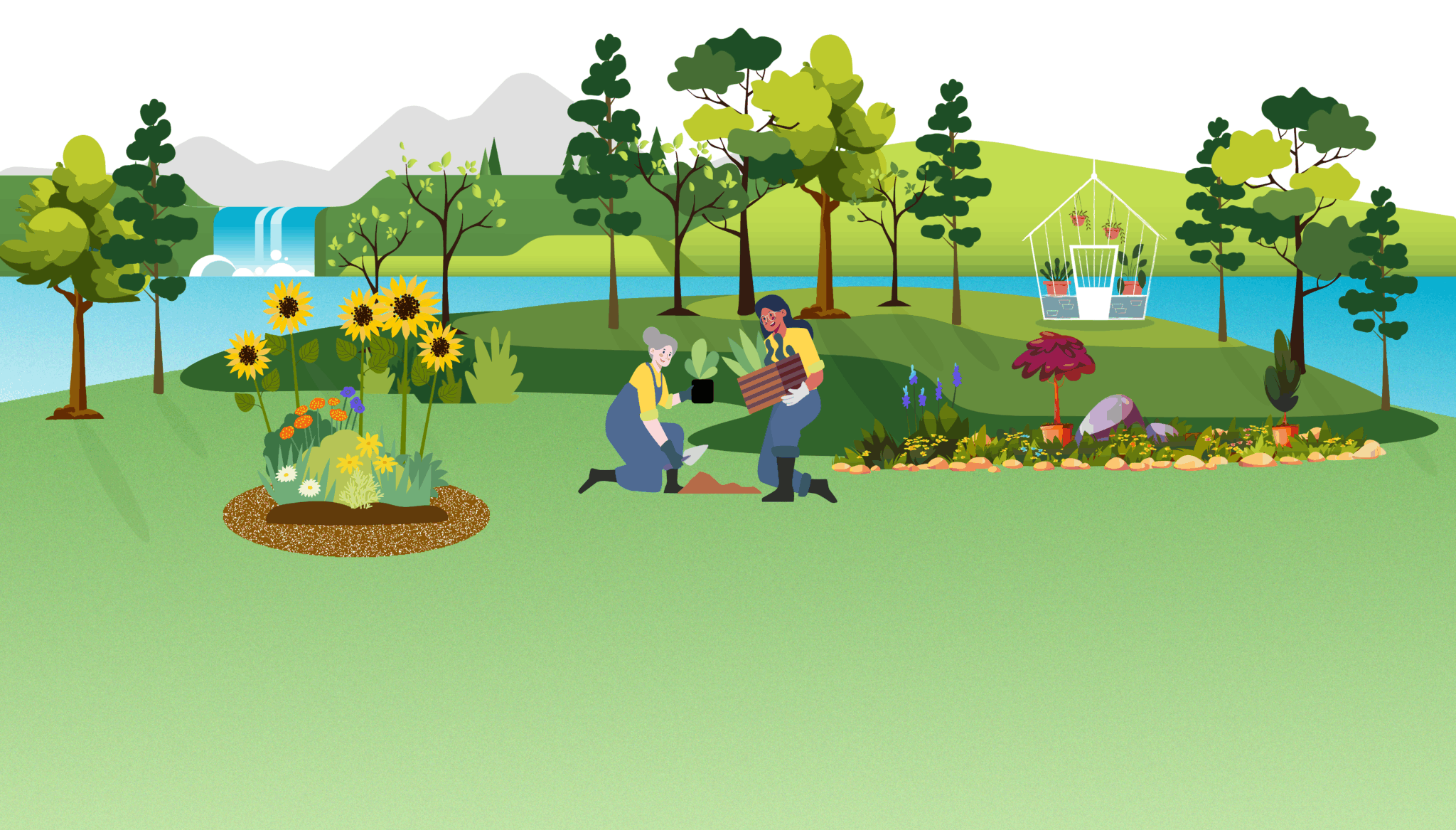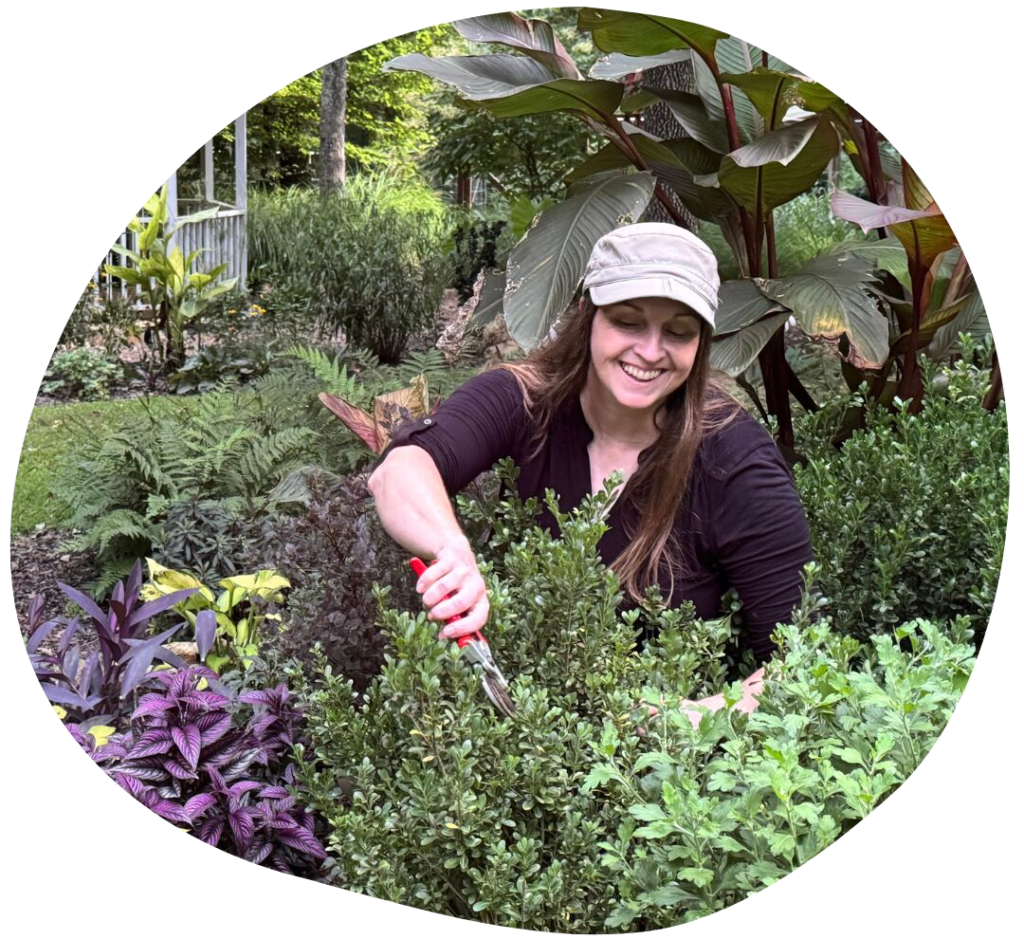

Professional
Deepening the Roots
You’ve built a strong foundation in therapeutic horticulture, and seen the impact first-hand. Now you’re ready to deepen your skills, sharpen your approach, and stay current as the field evolves. This path is for experienced practitioners who want to grow with intention, with advanced training and a professional community to support what comes next.
If you’re here, you’re already facilitating therapeutic horticulture and you’re ready for the next layer of growth. At this stage, it’s less about “more ideas” and more about nuance: strengthening clinical judgement in plant-based sessions, adapting confidently for diverse populations, and making facilitation choices that are ethical and evidence-informed.
Root in Nature’s advanced learning opportunities support practitioners who want to refine how they facilitate, explore emerging areas of practice, and expand their capacity to lead programs with clarity and care.
Opportunities to advance your practice include:
The Therapeutic Horticulture Certificate Pathway
For practitioners seeking structured, in-depth professional development, this pathway supports progression from advanced facilitation through to program development and management. It is designed for those who want to strengthen their leadership in TH practice and refine how they design, deliver, and sustain programs.
Thematic & Professional Practice Courses
Including offerings such as Supporting Emotional Resilience in a Changing Climate, these courses support practitioners in navigating the emotional and ecological realities shaping modern care work. They offer space for reflection, skill-building, and integration of nature-based approaches into complex therapeutic contexts.
Mini-Courses
Focused, 1-3 hour, pre-recorded courses on topics such as tools for therapeutic horticulture and emerging approaches that allow you to deepen your practice in targeted, practical ways without committing to a full pathway.
Whether you were trained through Root in Nature or another program, your experience is valued here. Our learning spaces intentionally welcome both TH and HT practitioners, recognising the diversity of pathways that contribute to thoughtful, responsive therapeutic work.
This stage is about moving with intention, continuing to grow not just in knowledge but in confidence, adaptability, and professional presence.



Join the GrowTH Network
As a seasoned practitioner, you’re not starting from scratch. You’re building on a solid foundation, refining your approach, expanding your impact, and staying aligned with the latest in the field. That takes more than advanced training — it takes connection, collaboration, and ongoing inspiration.
That’s where the GrowTH Network comes in.
This professional community is designed to support your continued growth with trusted resources, advanced tools, and opportunities to mentor, learn, and lead. Whether you’re exploring new techniques, looking to deepen your specialization, or simply want to stay connected to a professional network, you’ll find your place here.
Inside the GrowTH Network

Activity Database
A searchable collection of therapeutic horticulture activities categorized by population, setting, and therapeutic goal—ready to implement or adapt.

Resource Library
A robust curated collection of practical, customizable tools to support your programs.

Monthly Practitioner Support Calls
Live, guided conversations with an experienced TH/HT professional and fellow practitioners to share challenges, ideas, and encouragement.

Online Events with Guest Experts
Ongoing professional development opportunities tailored to this field and your real-world questions.


Stay Informed With Research That Grows With You
As a seasoned practitioner, you likely already know the power of therapeutic horticulture. But staying at the forefront of the field means continuously evolving – grounding your work in evidence, exploring emerging research, and staying connected to best practices.
The Root in Nature Research Database is your tool for just that.
Whether you’re mentoring others, advocating for funding, or refining your programs, this searchable, practitioner-friendly database helps you bridge experience with evidence, efficiently and meaningfully.
- A curated library of peer-reviewed studies and articles
- Research organized by population, goal, and setting
- Case examples that show how research translates into practice
- New studies and evolving evidence to keep your knowledge sharp and current
What You’ll Find
You’ve already proven the value of this work in your practice. Now you can back it up with credible research, and empower others to build confidence and credibility in theirs.
Stay Connected
Subscribe to our newsletter for the latest research, practical strategies, community features and events.
Follow us on Instagram, YouTube and Linkedin for resource giveaways, TH in action and seasonal inspiration.
Explore our blog for fresh insights, deeper dives on topics and real-life stories to inspire your TH practice.

